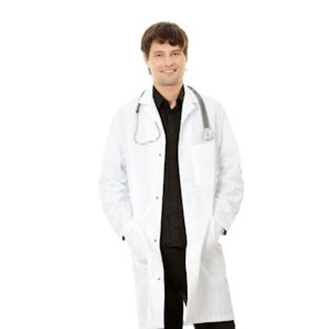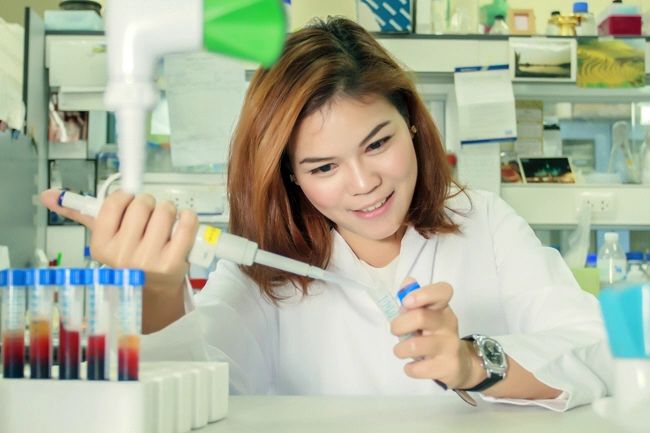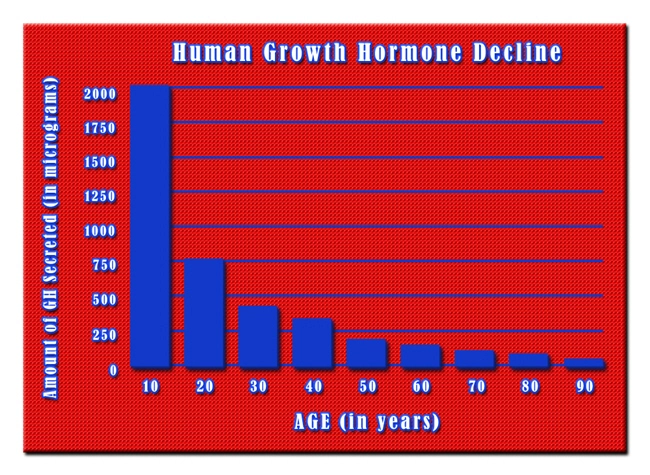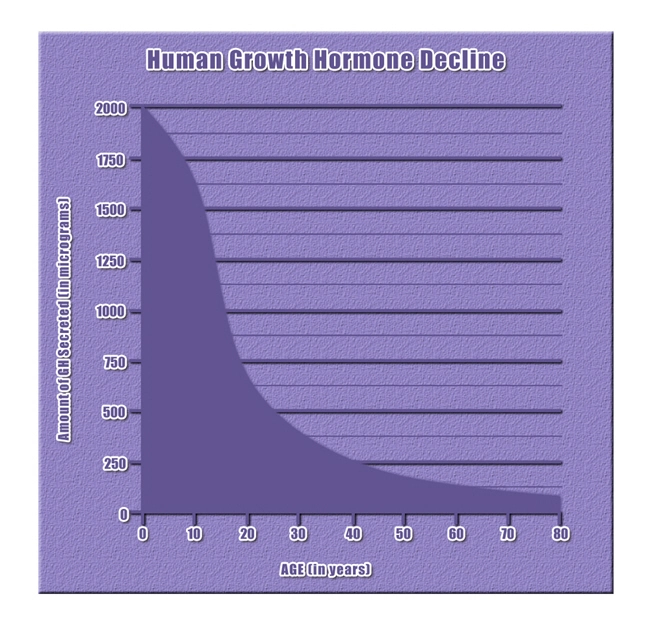
Introduction
Hypogonadism, a condition characterized by the body's inability to produce sufficient testosterone, has been increasingly recognized as a significant health concern among American males, particularly those battling cancer. This multi-center observational study delves into the prevalence of hypogonadism among this demographic and its profound impact on sexual health. By exploring the data collected from various medical centers across the United States, we aim to shed light on the challenges faced by these patients and the importance of addressing hypogonadism in their treatment plans.
Prevalence of Hypogonadism in American Males with Cancer
The study found that hypogonadism is alarmingly prevalent among American males diagnosed with cancer. Across the participating medical centers, approximately 40% of male cancer patients exhibited signs of hypogonadism. This high prevalence underscores the need for routine screening and early intervention to mitigate the effects of low testosterone levels on overall health and well-being.
Impact on Sexual Health
One of the most significant consequences of hypogonadism in American males with cancer is its detrimental effect on sexual health. Patients reported a notable decline in libido, erectile dysfunction, and overall sexual satisfaction. These symptoms not only affect the physical aspect of sexual health but also have a profound psychological impact, leading to increased stress, anxiety, and depression among affected individuals.
Mechanisms Linking Cancer and Hypogonadism
The study explored the potential mechanisms linking cancer and hypogonadism. It was found that cancer treatments, such as chemotherapy and radiation therapy, can directly affect the testes and other hormone-producing glands, leading to reduced testosterone production. Additionally, the systemic inflammation and stress associated with cancer can disrupt the hypothalamic-pituitary-gonadal axis, further contributing to hypogonadism.
Challenges in Diagnosis and Treatment
Diagnosing hypogonadism in American males with cancer presents unique challenges. The symptoms of hypogonadism can often be masked by or attributed to the side effects of cancer treatment, leading to underdiagnosis and delayed intervention. Moreover, treating hypogonadism in this population requires a delicate balance, as testosterone replacement therapy must be carefully managed to avoid exacerbating the cancer or interfering with other treatments.
Importance of Multidisciplinary Care
The study emphasizes the importance of a multidisciplinary approach to managing hypogonadism in American males with cancer. Collaboration between oncologists, endocrinologists, and sexual health specialists is crucial for developing personalized treatment plans that address both the cancer and the associated hypogonadism. This approach not only improves sexual health outcomes but also enhances overall quality of life for these patients.
Patient Education and Support
Educating American males with cancer about the potential for hypogonadism and its impact on sexual health is vital. The study highlights the need for comprehensive patient education programs that provide information on the signs and symptoms of hypogonadism, the importance of early diagnosis, and the available treatment options. Additionally, support groups and counseling services can play a significant role in helping patients cope with the psychological effects of hypogonadism and sexual dysfunction.
Conclusion
Hypogonadism is a prevalent and often overlooked condition among American males with cancer, with significant implications for sexual health. This multi-center observational study underscores the need for increased awareness, early diagnosis, and a multidisciplinary approach to managing hypogonadism in this population. By addressing this condition proactively, healthcare providers can improve the sexual health and overall well-being of American males battling cancer, ultimately enhancing their quality of life during and after treatment.
Contact Us Today For A Free Consultation
Dear Patient,
Once you have completing the above contact form, for security purposes and confirmation, please confirm your information by calling us.
Please call now: 1-800-380-5339.
Welcoming You To Our Clinic, Professor Tom Henderson.

- Unveiling the Link Between Hypogonadism and Mental Health: A Comprehensive Guide for American Males [Last Updated On: February 24th, 2025] [Originally Added On: February 24th, 2025]
- Unveiling the Best Practices in Monitoring Hypogonadism: A Guide for American Males [Last Updated On: March 4th, 2025] [Originally Added On: March 4th, 2025]
- Hypogonadism and Sleep Disorders: A Bidirectional Impact on Men's Health [Last Updated On: March 5th, 2025] [Originally Added On: March 5th, 2025]
- Unveiling the Muscle Health Dilemma: The Role of Hypogonadism in American Males [Last Updated On: March 16th, 2025] [Originally Added On: March 16th, 2025]
- Navigating Hypogonadism in Men with Autoimmune Diseases: A Comprehensive Guide [Last Updated On: March 16th, 2025] [Originally Added On: March 16th, 2025]
- Unveiling the Link Between Hypogonadism and Impaired Wound Healing in American Males [Last Updated On: March 16th, 2025] [Originally Added On: March 16th, 2025]
- Unraveling the Connection Between Hypogonadism and Parathyroid Health in American Males [Last Updated On: March 16th, 2025] [Originally Added On: March 16th, 2025]
- Hypogonadism and Testosterone Therapy: Benefits, Risks, and Management for American Males [Last Updated On: March 17th, 2025] [Originally Added On: March 17th, 2025]
- Exercise as a Key Strategy in Managing Hypogonadism in American Males [Last Updated On: March 17th, 2025] [Originally Added On: March 17th, 2025]
- Hypogonadism's Impact on Liver Health: Diagnosis, Treatment, and Lifestyle Management [Last Updated On: March 18th, 2025] [Originally Added On: March 18th, 2025]
- Hypogonadism in American Males: Diagnosis, Treatment, and Medical Education Essentials [Last Updated On: March 19th, 2025] [Originally Added On: March 19th, 2025]
- Hypogonadism and Chronic Pain: Integrated Treatment Approaches for American Males [Last Updated On: March 19th, 2025] [Originally Added On: March 19th, 2025]
- Exploring Alternative Therapies for Hypogonadism: Benefits, Risks, and Options for American Men [Last Updated On: March 19th, 2025] [Originally Added On: March 19th, 2025]
- Hypogonadism and Thyroid Function: Interplay and Impact on Male Health [Last Updated On: March 19th, 2025] [Originally Added On: March 19th, 2025]
- Hypogonadism and Autoimmune Disorders: Insights and Management for American Males [Last Updated On: March 20th, 2025] [Originally Added On: March 20th, 2025]
- Ethical Challenges in Diagnosing and Treating Hypogonadism in American Males [Last Updated On: March 20th, 2025] [Originally Added On: March 20th, 2025]
- Hypogonadism's Impact on Prostate Health: Understanding and Managing Risks in American Males [Last Updated On: March 20th, 2025] [Originally Added On: March 20th, 2025]
- Hypogonadism Screening and Management Guidelines for American Males [Last Updated On: March 21st, 2025] [Originally Added On: March 21st, 2025]
- Hypogonadism's Impact on American Men: Physical, Mental, and Social Effects [Last Updated On: March 21st, 2025] [Originally Added On: March 21st, 2025]
- Hypogonadism and Cancer Risk: Understanding Links and Managing Health in American Males [Last Updated On: March 22nd, 2025] [Originally Added On: March 22nd, 2025]
- Medical Imaging's Crucial Role in Diagnosing Hypogonadism in American Males [Last Updated On: March 22nd, 2025] [Originally Added On: March 22nd, 2025]
- Hypogonadism's Impact on Muscle Health in American Males: Causes and Management [Last Updated On: March 23rd, 2025] [Originally Added On: March 23rd, 2025]
- Hypogonadism's Impact on Immune Function in American Males: Health and Therapeutic Insights [Last Updated On: March 23rd, 2025] [Originally Added On: March 23rd, 2025]
- Hypogonadism and Gastrointestinal Health: A Bidirectional Impact in American Males [Last Updated On: March 23rd, 2025] [Originally Added On: March 23rd, 2025]
- Hypogonadism's Impact on Bone Health: Treatments and Management Strategies [Last Updated On: March 23rd, 2025] [Originally Added On: March 23rd, 2025]
- Managing Hypogonadism and Kidney Disease in American Males: A Comprehensive Approach [Last Updated On: March 24th, 2025] [Originally Added On: March 24th, 2025]
- Innovations in Hypogonadism Treatment: From TRT to Personalized Medicine [Last Updated On: March 24th, 2025] [Originally Added On: March 24th, 2025]
- Preventing Hypogonadism in American Males: Strategies and Interventions [Last Updated On: March 24th, 2025] [Originally Added On: March 24th, 2025]
- Hypogonadism's Impact on Skin Health and Testosterone Replacement Therapy Benefits [Last Updated On: March 24th, 2025] [Originally Added On: March 24th, 2025]
- Hypogonadism and Blood Pressure: Understanding Impacts and Management Strategies [Last Updated On: March 24th, 2025] [Originally Added On: March 24th, 2025]
- Managing Hypogonadism: Comprehensive Medical Rehabilitation for American Males [Last Updated On: March 24th, 2025] [Originally Added On: March 24th, 2025]
- Hypogonadism and Headaches: Diagnosis, Treatment, and Management for American Males [Last Updated On: March 25th, 2025] [Originally Added On: March 25th, 2025]
- Monitoring Hypogonadism in Long-Term Care: Strategies and Challenges [Last Updated On: March 25th, 2025] [Originally Added On: March 25th, 2025]
- Hypogonadism in American Males: Impact on Joint Health and Treatment Options [Last Updated On: March 25th, 2025] [Originally Added On: March 25th, 2025]
- Managing Hypogonadism: The Crucial Role of Multidisciplinary Medical Teams [Last Updated On: March 25th, 2025] [Originally Added On: March 25th, 2025]
- Hypogonadism and Neurological Disorders in American Males: A Bidirectional Impact on Health [Last Updated On: March 25th, 2025] [Originally Added On: March 25th, 2025]
- Psychological Counseling Needs for American Males with Hypogonadism: A Comprehensive Approach [Last Updated On: March 25th, 2025] [Originally Added On: March 25th, 2025]
- Hypogonadism and Anemia in American Males: Diagnosis, Management, and Lifestyle Impact [Last Updated On: March 26th, 2025] [Originally Added On: March 26th, 2025]
- Hypogonadism's Impact on Dental Health: Causes, Symptoms, and Management Strategies [Last Updated On: March 26th, 2025] [Originally Added On: March 26th, 2025]
- Hypogonadism's Emotional Impact: Understanding and Managing Low Testosterone in American Men [Last Updated On: March 26th, 2025] [Originally Added On: March 26th, 2025]
- Understanding Hypogonadism: Symptoms, Diagnosis, and Treatment for American Men [Last Updated On: March 26th, 2025] [Originally Added On: March 26th, 2025]
- Hypogonadism and Cholesterol: A Critical Link Impacting Cardiovascular Health in American Males [Last Updated On: March 26th, 2025] [Originally Added On: March 26th, 2025]
- Medical Nutrition Therapy: A Promising Approach to Managing Hypogonadism in American Males [Last Updated On: March 26th, 2025] [Originally Added On: March 26th, 2025]
- Hypogonadism's Impact on Respiratory Health in American Males: Insights and Management [Last Updated On: March 26th, 2025] [Originally Added On: March 26th, 2025]
- Hypogonadism in American Males: Trends, Treatments, and Future Research Directions [Last Updated On: March 26th, 2025] [Originally Added On: March 26th, 2025]
- Hypogonadism and Hair Loss: Understanding Links and Treatment Options for American Males [Last Updated On: March 26th, 2025] [Originally Added On: March 26th, 2025]
- Hypogonadism and Hearing Loss: Exploring the Link and Implications for Treatment [Last Updated On: March 26th, 2025] [Originally Added On: March 26th, 2025]
- Hypogonadism in Transgender Men: Symptoms, Diagnosis, and Management Strategies [Last Updated On: March 26th, 2025] [Originally Added On: March 26th, 2025]
- Medical Technology's Role in Diagnosing Hypogonadism: Advances and Future Prospects [Last Updated On: March 26th, 2025] [Originally Added On: March 26th, 2025]
- Hypogonadism's Impact on Balance: Hormonal Links and Treatment Strategies [Last Updated On: March 27th, 2025] [Originally Added On: March 27th, 2025]
- Hypogonadism and Allergies: Exploring the Medical Link in American Males [Last Updated On: March 27th, 2025] [Originally Added On: March 27th, 2025]
- Hypogonadism's Impact on Eye Health: Diagnosis, Management, and Prevention Strategies [Last Updated On: March 27th, 2025] [Originally Added On: March 27th, 2025]
- Hypogonadism's Impact on Cognitive Health in American Men: Risks and Interventions [Last Updated On: March 28th, 2025] [Originally Added On: March 28th, 2025]
- Hypogonadism's Impact on Vision: Symptoms, Diagnosis, and Holistic Management in American Males [Last Updated On: March 29th, 2025] [Originally Added On: March 29th, 2025]
- Managing Hypogonadism-Related Fatigue: Therapies and Lifestyle Strategies for American Males [Last Updated On: March 29th, 2025] [Originally Added On: March 29th, 2025]
- Hypogonadism and GERD: Exploring Hormonal Links and Treatment Implications in American Males [Last Updated On: March 30th, 2025] [Originally Added On: March 30th, 2025]
- Managing Hypogonadism in Primary Care: Diagnosis, Treatment, and Monitoring Guidelines [Last Updated On: March 30th, 2025] [Originally Added On: March 30th, 2025]
- Hypogonadism's Impact on Urinary Health: Diagnosis, Management, and Monitoring Strategies [Last Updated On: March 30th, 2025] [Originally Added On: March 30th, 2025]
- Medical Social Workers: Vital Support for American Males with Hypogonadism [Last Updated On: March 31st, 2025] [Originally Added On: March 31st, 2025]
- Hypogonadism Linked to Accelerated Skin Aging in American Males: Study Insights [Last Updated On: April 3rd, 2025] [Originally Added On: April 3rd, 2025]
- Strategies to Enhance Adherence to Hypogonadism Treatment in American Males [Last Updated On: April 3rd, 2025] [Originally Added On: April 3rd, 2025]
- Hypogonadism's Impact on Peripheral Neuropathy in American Males: Diagnosis and Treatment [Last Updated On: April 4th, 2025] [Originally Added On: April 4th, 2025]
- Hypogonadism's Impact on Nail Health in American Males: Symptoms and Management [Last Updated On: April 6th, 2025] [Originally Added On: April 6th, 2025]
- Hypogonadism's Impact on Gallbladder Health in American Males: Emerging Links and Insights [Last Updated On: April 6th, 2025] [Originally Added On: April 6th, 2025]
- Hypogonadism's Impact on Wound Healing in American Males: Insights and Strategies [Last Updated On: April 9th, 2025] [Originally Added On: April 9th, 2025]
- Medical Devices Revolutionize Hypogonadism Treatment for American Men [Last Updated On: April 9th, 2025] [Originally Added On: April 9th, 2025]
- Hypogonadism in American Men: Recognition, Diagnosis, and Management Strategies [Last Updated On: April 9th, 2025] [Originally Added On: April 9th, 2025]
- Hypogonadism's Impact on Sinus Health: Testosterone's Role and Treatment Insights [Last Updated On: April 10th, 2025] [Originally Added On: April 10th, 2025]
- Hypogonadism Management in American Males with Chronic Illnesses: Diagnosis, Treatment, and Lifestyle [Last Updated On: April 11th, 2025] [Originally Added On: April 11th, 2025]
- Nurses' Crucial Role in Managing Hypogonadism in American Males [Last Updated On: April 11th, 2025] [Originally Added On: April 11th, 2025]
- Hypogonadism's Impact on Spleen Health in American Males: Emerging Links and Implications [Last Updated On: April 11th, 2025] [Originally Added On: April 11th, 2025]
- Hypogonadism's Impact on Ear Health: Understanding and Managing in American Males [Last Updated On: April 12th, 2025] [Originally Added On: April 12th, 2025]
- Medical Counseling: Essential for Effective Hypogonadism Management in American Males [Last Updated On: April 13th, 2025] [Originally Added On: April 13th, 2025]
- Hypogonadism's Impact on Lymphatic Function in American Males: Study Insights [Last Updated On: April 13th, 2025] [Originally Added On: April 13th, 2025]
- Hypogonadism and Adrenal Function: Impacts and Management for American Males [Last Updated On: April 15th, 2025] [Originally Added On: April 15th, 2025]
- Hypogonadism and Pineal Gland: Emerging Links and Implications for American Males [Last Updated On: April 15th, 2025] [Originally Added On: April 15th, 2025]
- Medical Dietitians' Role in Managing Hypogonadism Through Nutrition and Lifestyle [Last Updated On: April 15th, 2025] [Originally Added On: April 15th, 2025]
- Hypogonadism in American Males: Diagnosis, Treatment, and Pituitary Health Impact [Last Updated On: April 16th, 2025] [Originally Added On: April 16th, 2025]
- Hypogonadism and Parathyroid Health: Interplay and Management Strategies for American Males [Last Updated On: April 17th, 2025] [Originally Added On: April 17th, 2025]
- Hypogonadism's Impact on Thymus Health and Treatment Options for American Males [Last Updated On: April 17th, 2025] [Originally Added On: April 17th, 2025]








